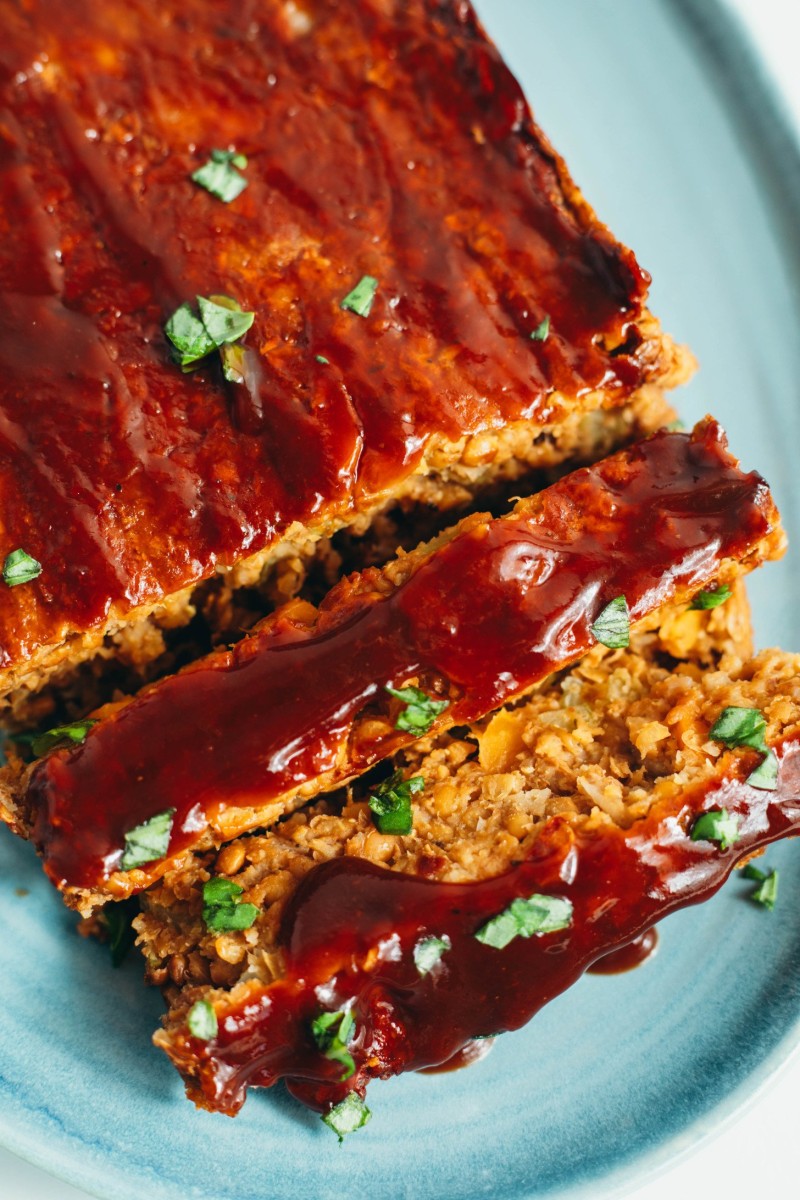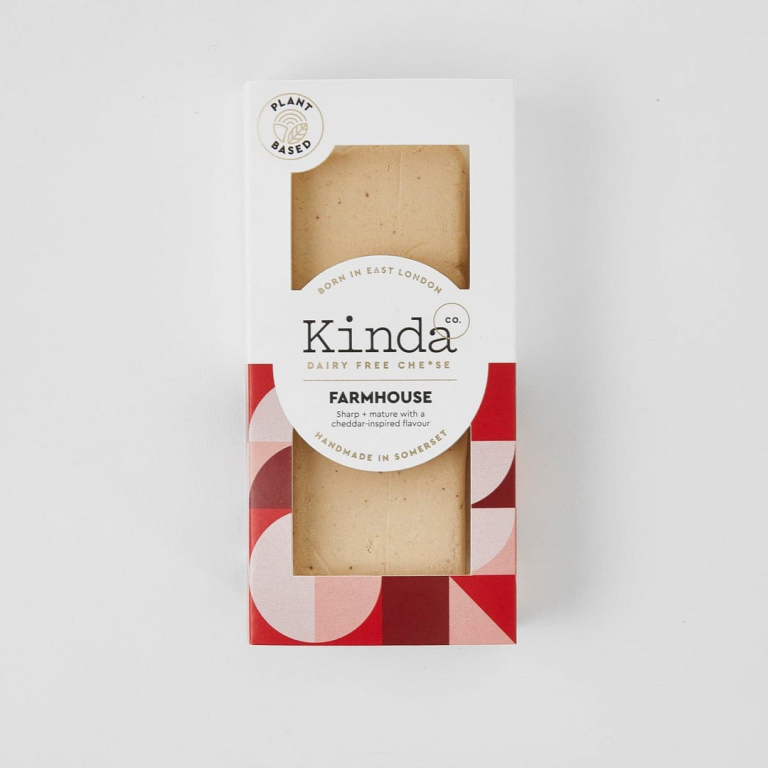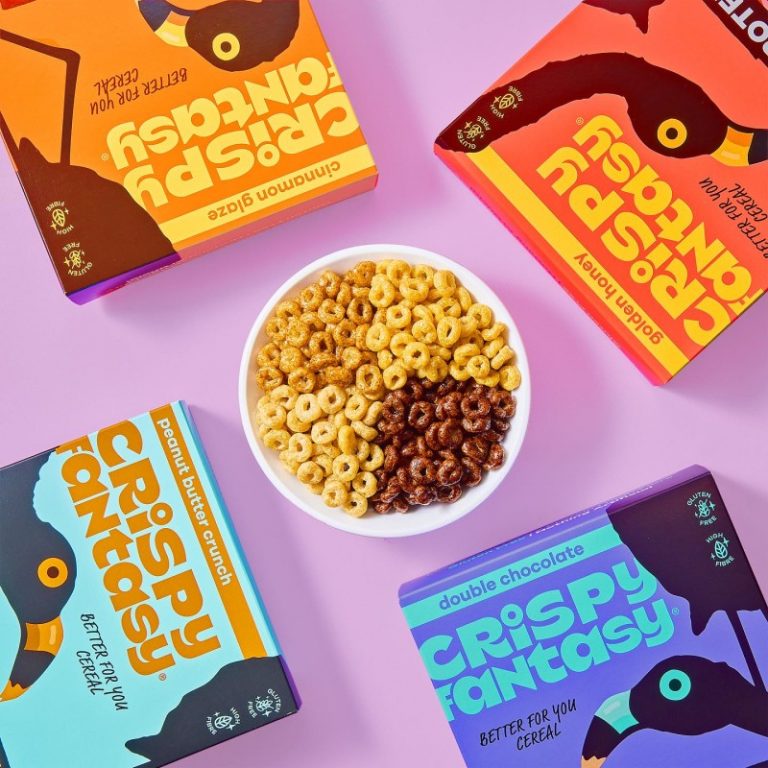
Picture a loaf that smells rich, slices clean, and satisfies without leaving you heavy. Vegan lentil meatloaf delivers that same Sunday comfort, only it swaps beef for lentils, vegetables, and warm spices. It is a plant-based twist on a classic, designed for anyone who wants hearty food with a lighter touch.
This lentil meatloaf recipe (It’s Liv B) only needs a few ingredients, and is far tastier and more affordable than dusty-tasting vegan roasts sold in stores. Packed with nutrition, it uses brown lentils and lots of veggies, topped with a tangy BBQ glaze. Serve sliced with vegan roast potatoes, your favourite veggies and vegan gravy.
Before making, read our post on food safety for people and pets (some ingredients like onion and garlic are unsafe near animal friends). Don’t give leftover roasties to pets, garden birds or wildfowl due to salt and fat (which can smear on feathers, affecting waterproofing and insulation).
Unlock Health Benefits from Every Slice
Vegan lentil meatloaf supports a healthy diet without fuss. It packs useful protein, a lot of fibre, and a range of vitamins and minerals. For many families, it becomes a dependable staple.
Think of how it compares with traditional meatloaf. You still get plenty of protein, only now it comes with no cholesterol and very little saturated fat. You also gain fibre and plant compounds that support your heart and gut.
Here is what stands out:
- Protein that satisfies: Lentils offer high-quality plant protein. Pair them with grains like oats or breadcrumbs, and you get a complete amino acid profile that helps muscle repair.
- Fibre for gut and heart: Lentils bring both soluble and insoluble fibre. That helps digestion, supports a healthy gut, and can lower LDL cholesterol.
- Low in saturated fat: No animal fat means less saturated fat and zero cholesterol. This supports heart health over time.
- Vitamins and minerals: Onions, carrots, tomatoes, and herbs add iron, folate, potassium, and antioxidants. These nutrients support energy, immune function, and recovery.
- Steady energy: Complex carbs in lentils release slowly, which avoids spikes and crashes.
A balanced plate could include one thick slice, steamed greens, and roasted potatoes. For most adults, a portion of 150 to 200 grams works well. Add a side salad with a squeeze of lemon for vitamin C, which boosts iron absorption from lentils. If you prefer lighter meals, serve a smaller slice with mixed vegetables and a grain.
Build Stronger Muscles with Plant Power
Protein matters for active bodies, and lentil meatloaf makes it easy. Lentils supply essential amino acids; grains top up what is low. Together they deliver complete protein. One serving can provide about 18 grams of protein, so it supports muscle repair after training and helps you feel full.
Unlike heavy meat-based meals, a lentil loaf offers steady energy without a greasy finish. That makes it a sound option before evening workouts or long days.
Support Digestion and Weight Goals
Fibre is a quiet hero here. Lentils contain soluble fibre that binds cholesterol and can help lower LDL levels. It also slows digestion, which stabilises blood sugar and helps with appetite control. Insoluble fibre supports regularity and feeds a healthy gut microbiome.
Boost Immunity with Hidden Nutrients
Iron and folate in lentils help your body make healthy blood cells. Carrots, onions, garlic, and tomatoes add antioxidants that protect cells from stress. To improve iron uptake, serve your loaf with a tomato glaze or a side of red pepper salad. Vitamin C enhances iron absorption from plant foods. Better absorption can mean improved energy, fewer dips in mood, and stronger resilience during the cold season.
How Lentils Help the Planet
Choosing lentil meatloaf is a small change with a real benefit for the planet. Pulses like lentils need fewer resources to grow, and they bring life back to soil. Compared with beef, lentils have a much smaller carbon footprint and water use.
Lentils fix nitrogen in the soil through a natural process. Farmers then need less synthetic fertiliser, which can reduce emissions and protect waterways. Growing lentils also supports crop diversity, which helps soil structure and local biodiversity.
Shifting even one meal a week away from beef lowers your environmental footprint. These swaps stack up across months and households, which is where the impact becomes visible.
Cut Down on Carbon Emissions
Beef production releases high levels of greenhouse gases, especially methane from cattle. Lentils do not produce methane in the way ruminant animals do. A lentil-based loaf has a carbon footprint that is far lower than a beef version, often around 90 percent lower when you compare like for like. If you enjoy numbers, track your swaps for a month to see the savings add up.
Save Water and Protect Land
Beef is water intensive. Common estimates show that producing meat can require many thousands of litres per kilogram, while lentils need a fraction of that. You will often see figures of around 15,000 litres for beef per kilogram compared with far lower amounts for lentils. Lentils also improve soil health, which can reduce fertiliser use and help keep rivers cleaner. Less input, healthier soil, and better water quality form a powerful trio.
Simplify Your Kitchen Routine and Budget
Beyond health and the planet, this loaf makes life easier. Lentil meatloaf uses basic pantry items and comes together with little fuss. Most recipes are budget friendly and family ready. The loaf slices well for lunch boxes and reheats without drying out.
A typical batch uses cooked lentils, onions, carrots, garlic, tomato paste, herbs, oats or breadcrumbs, and a simple glaze. You can customise the flavour with mushrooms, smoked paprika, or a splash of soy sauce.
Prep time fits into a weeknight. From start to finish, you can be ready in under an hour, and much of that time is hands-off while it bakes. It also freezes well, so you can cook once and eat twice.
Leftovers make great sandwiches the next day. Think seeded bread, a smear of mustard, crunchy lettuce, and a warm slice of loaf. The cost per serving is low, which helps in a tight month.
This is simpler than many meatloaf methods. No thawing, no trimming fat, and less time handling raw meat. For extra speed, use canned lentils, then adjust moisture with a little extra binder. You can also make the mix a day ahead and bake when needed.
Stretch Your Grocery Bill Further
Lentils are one of the best value proteins on the shelf. A batch of lentil meatloaf often costs around £1 to £2 in ingredients, which works out at roughly 20p per serving in many UK shops. Beef prices remain higher, often £5 or more for the same number of servings. For bigger savings, buy lentils in bulk or choose supermarket own brands. Freeze spare portions so nothing goes to waste.
Families like it because it is easy to adjust. Add extra carrots for sweetness, mushrooms for umami, or chilli for heat. Picky eaters can enjoy a smooth texture if you pulse the mix a few times before baking.






